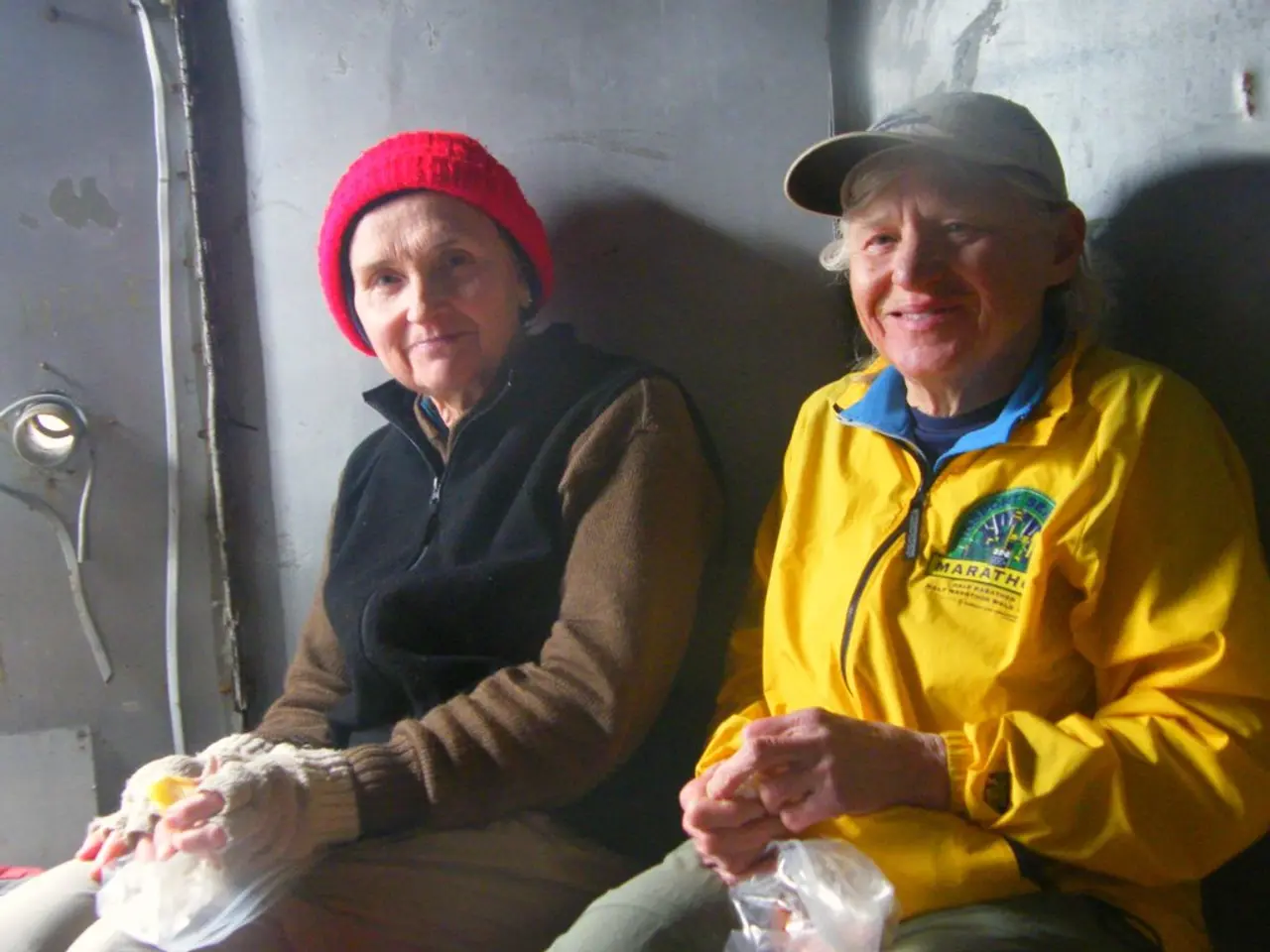Elderly Skin Imperfections: Reasons and Remedies for Pimples
In the golden years of life, the skin may require a more delicate touch. Harsh chemicals and abrasive scrubs can exacerbate skin issues in elderly skin, necessitating gentle care. This is particularly true for acne, a condition that can persist in adults and seniors, often due to hormonal changes such as a decrease in estrogen and an increase in male hormones like testosterone and dihydrotestosterone.
For women in menopause, a few pimples might not necessitate further investigation. However, if it's a more severe case, hormone levels and health checks for conditions like diabetes and high blood pressure should be considered. Other factors contributing to acne in adults include thyroid troubles, high prolactin levels, insulin resistance, and lifestyle changes such as stress, bad diet, lack of sleep, and laziness.
Identifying the triggers for acne, such as hormonal changes or certain skincare products, is a crucial first step in addressing acne. Lifestyle changes, including reducing stress, maintaining a healthy diet, exercising, and having a skincare routine, can also help improve acne.
Dermatologists can offer a range of treatments to address acne in the elderly, including topical medications and oral prescriptions. Treatment for acne in adults depends on its severity. Mild cases can be treated with creams and lotions, while more severe cases may require medication such as spironolactone.
For managing and preventing acne in elderly individuals, recommended skincare practices include gentle cleansing twice daily with non-irritating, mild cleansers to avoid over-drying or irritating aging skin. The use of topical treatments appropriate for sensitive or mature skin, such as benzoyl peroxide combined with topical antibiotics like clindamycin or minocycline, if prescribed, may be used cautiously in the elderly considering possible kidney or liver issues.
Exfoliation with mild agents such as glycolic acid can help remove dead skin cells and prevent clogged pores, but should be used carefully to avoid irritation. Daily application of broad-spectrum sunscreens (SPF 30 or higher), preferably mineral-based (e.g., zinc oxide), to protect against UV-induced skin damage, pigmentation, and to support overall skin health is also advised.
Avoidance of pimple squeezing or picking, as this increases the risk of complications, is crucial. Keeping skin moisturized with non-comedogenic moisturizers like Cerave or Cetaphil products, to maintain skin barrier integrity, especially important in elderly skin that tends to be drier, is also recommended.
Consultation with a dermatologist is advisable if acne persists or worsens, as prescription treatments such as oral retinoids (e.g., isotretinoin) may be considered but require careful monitoring in older adults due to side effects.
In summary, elderly individuals should avoid pimple popping to prevent long-term skin damage and adopt a gentle, well-balanced skincare routine focused on cleansing, moisturizing, sun protection, and using targeted acne treatments under medical supervision. Aging gracefully involves caring for our skin with patience and informed choices, avoiding the unnecessary pitfalls of pimple popping.
[1] American Academy of Dermatology. (2021). Skincare for Older Adults. [online] Available at: https://www.aad.org/public/everyday-care/skin-care-secrets/older-adults
[2] Mayo Clinic. (2021). Acne in adults: Overview. [online] Available at: https://www.mayoclinic.org/diseases-conditions/acne/in-depth/acne-in-adults/art-20047894
[3] Skincare.com. (2021). The Importance of Sunscreen for Mature Skin. [online] Available at: https://www.skincare.com/content/the-importance-of-sunscreen-for-mature-skin
[4] American Academy of Dermatology. (2021). Acne. [online] Available at: https://www.aad.org/public/diseases/acne
[5] National Institute of Arthritis and Musculoskeletal and Skin Diseases. (2021). Acne. [online] Available at: https://www.niams.nih.gov/health-topics/acne
- Alongside skin care, medical conditions like diabetes and high blood pressure should be monitored in older adults dealing with acne due to hormonal changes.
- Aging gracefully involves adopting a balanced skincare routine for seniors, focusing on gentle cleansing, moisturizing, sun protection, and using targeted acne treatments under medical supervision.
- Topical treatments for mature skin, such as benzoyl peroxide combined with antibiotics, may be used cautiously in the elderly to address acne, taking kidney or liver issues into account.
- Adults, including seniors, may experience persistent acne due to hormonal changes such as a decrease in estrogen and an increase in male hormones like testosterone and dihydrotestosterone.
- Proper skin care for men requires addressing conditions like prostate issues, while maintaining overall men's health, including mental health, fitness, and nutrition.
- In the discussion of health and wellness, it's essential to consider the importance of sunscreen for mature skin, which protects against UV damage, pigmentation, and supports overall skin health.
- Skin conditions like acne can be managed and prevented through targeted therapies and treatments that require monitoring, especially in older adults due to potential side effects.
- Mental health, a crucial aspect of health and wellness, is often overlooked, but addressing conditions like depression and anxiety through therapies and treatments can have a significant impact on overall health, including skin care.
- In addition to addressing medical conditions like acne, women's health concerns include reproductive health, menopause, and skin care, specifically addressing conditions like eczema, psoriasis, and rosacea.
- Proper parenting involves not only physical health concerns like cardiovascular health and respiratory conditions, but also mental health, nutrition, and skincare, which affects self-esteem and confidence in children.
- Neurological disorders like Alzheimer's and Parkinson's can have skin-related complications, such as dryness, itching, and skin infections, which require specialized attention and care.




